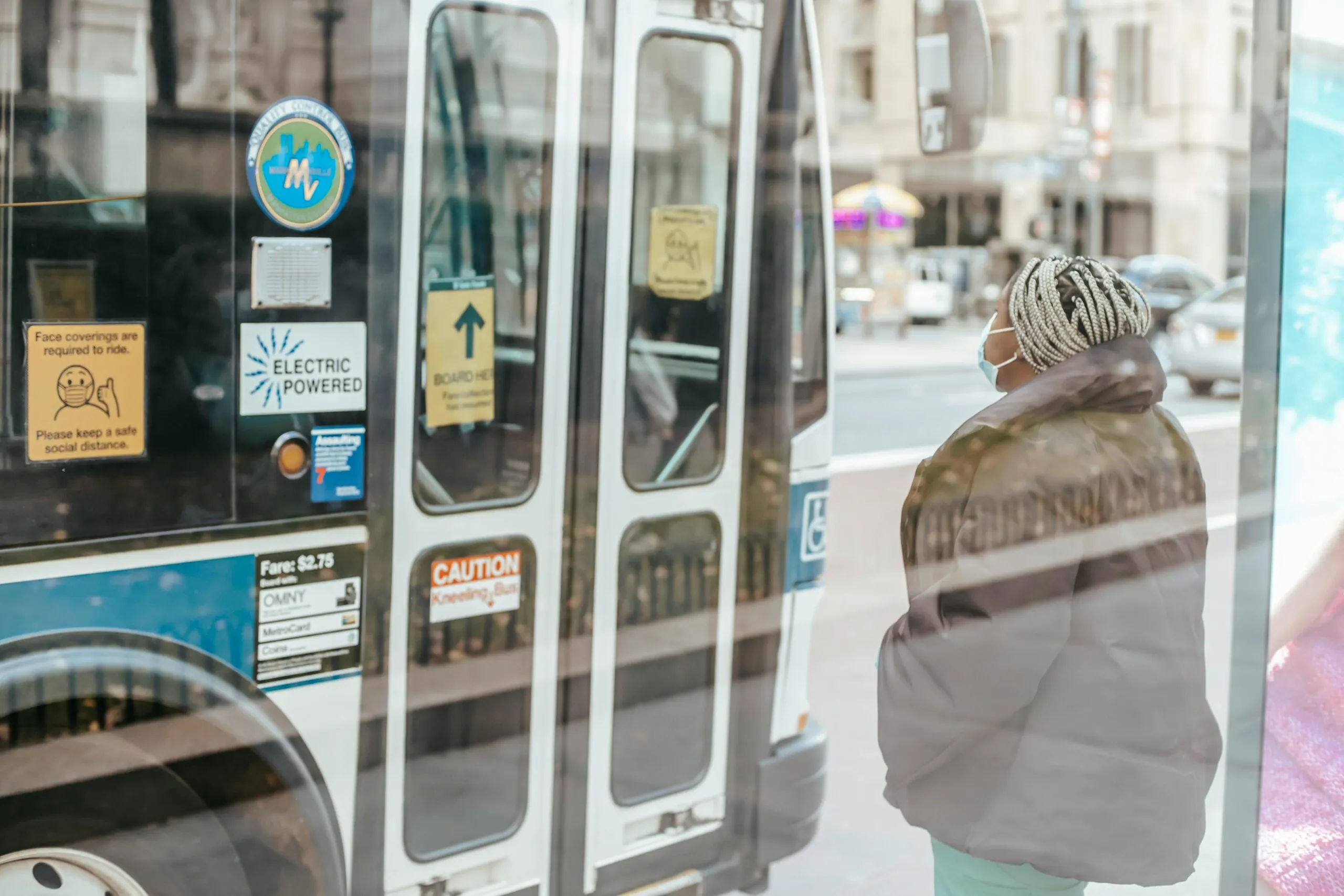Imagine a world where getting that morning cup of coffee requires growing your own beans, and the newest fashion trend remains a local secret. This is the reality without transport services, the intricate network that keeps our lives running smoothly. From the moment we wake up to the countless products lining store shelves, transportation plays an indispensable role in our daily routines.
This article delves into the world of transport services, exploring the various modes available, their significance in our society, and the exciting advancements shaping the future of mobility.
The Diverse Landscape of Transport
Our transportation system thrives on a vibrant tapestry of options, each catering to specific needs.
Land Transportation: Ruling the roads, we have the familiar personal vehicles like cars and motorbikes. Buses and trains efficiently ferry passengers within cities and across vast distances. Taxis and ride-hailing services offer convenient door-to-door solutions, while the rumble of trucks ensures a steady flow of goods across the land.
Air Transportation: Taking to the skies, airplanes have revolutionized travel, enabling rapid long-distance movement of people and cargo. From commercial airlines to private jets, air transport plays a crucial role in global trade and tourism.
Water Transportation: The vast oceans are no barrier thanks to a network of ships and boats. From colossal cargo vessels carrying tons of goods to ferries transporting passengers across waterways, water transportation remains vital for international trade and travel.
The Engine of a Globalized World
Transport services aren’t merely a convenience; they are the cornerstone of a globalized society:
Economic Powerhouse: The seamless movement of goods fuels international trade, fostering economic activity and creating a global marketplace. Efficient transportation systems connect producers and consumers, enabling businesses to reach wider audiences.
Social Connector: Transportation bridges geographical gaps, allowing people to connect with loved ones across vast distances. It facilitates access to essential services like healthcare and education, fostering a more inclusive society.
Cultural Exchange: The ease of travel broadens our horizons. Tourists explore new destinations, experiencing diverse cultures and traditions. This exchange of ideas and perspectives enriches societies and promotes global understanding.
Choosing the Right Ride: Factors at Play
Selecting the most suitable transport service requires careful consideration of various factors:
Cost: Prices vary significantly between modes of transport. Budget-conscious individuals might opt for public transportation, while time-sensitive deliveries may necessitate faster, albeit costlier, air freight.
Speed: Delivery deadlines and travel time play a crucial role. Air travel offers the fastest option for long distances, while local commutes might be best served by efficient public transportation systems.
Reliability: A dependable service is paramount. Factors like a company’s track record for on-time deliveries and safety measures should be weighed heavily in the decision-making process.
The Road Ahead: A Glimpse into the Future
The transportation landscape is undergoing a dynamic transformation, driven by innovation and a growing focus on sustainability:
Emerging Technologies: Self-driving cars hold immense potential for revolutionizing personal transportation, offering increased safety and efficiency. Drone deliveries promise to expedite the movement of goods, particularly in remote areas.
Sustainability Focus: As environmental concerns mount, the spotlight is on eco-friendly alternatives. Electric vehicles are gaining traction, reducing reliance on fossil fuels. Biofuels offer a promising avenue for sustainable transportation solutions.
Conclusion: A World on the Move
Transport services are the arteries of our globalized world, keeping people and products in constant motion. From the bustling city streets to the vast expanse of the oceans, these services ensure the smooth functioning of our society. As we embrace technological advancements and prioritize sustainability, the future of transport promises to be even more efficient, interconnected, and environmentally conscious.

The Vital Web of Transport Services: Keeping Our World Connected
Imagine a world where getting that morning cup of coffee requires growing your own beans, and the newest fashion trend remains a local secret. This is the reality without transport services, the intricate network that keeps our lives running smoothly. From the moment we wake up to the countless products lining store shelves, transportation plays an indispensable role in our daily routines.
This article delves into the world of transport services, exploring the various modes available, their significance in our society, and the exciting advancements shaping the future of mobility.
The Diverse Landscape of Transport
Our transportation system thrives on a vibrant tapestry of options, each catering to specific needs:
Land Transportation:
Personal Vehicles: Ruling the roads, we have the familiar cars and motorbikes offering individual freedom and flexibility. While convenient for personal commutes and errands, they contribute significantly to traffic congestion and environmental pollution, particularly in urban areas.
Public Transportation: Designed for mass mobility, buses and trains efficiently ferry passengers within cities and across vast distances. Subways, particularly prevalent in densely populated areas, provide a quick and affordable way to navigate urban landscapes. Public transport plays a crucial role in reducing traffic congestion and promoting sustainable commuting.
Taxis and Ride-hailing Services: Offering convenient door-to-door solutions, taxis and ride-hailing services like Uber and Lyft have become increasingly popular in recent years. These services cater to short-distance trips and provide a readily available alternative to personal vehicle use.
Air Transportation:
Airlines: Taking to the skies, airlines have revolutionized travel, enabling rapid long-distance movement of people and cargo. Passenger airlines connect individuals and families across continents, fostering tourism and global business interactions. Cargo airlines play a vital role in international trade, ensuring the swift and efficient movement of goods across vast distances.
Private Jets and Helicopters: For those seeking ultimate convenience and speed, private jets and helicopters offer a luxurious and exclusive travel option. However, their high operating costs and limited accessibility make them suitable for a niche market.
Water Transportation:
Ships and Boats: The vast oceans are no barrier thanks to a network of ships and boats. Cargo vessels, often colossal in size, carry tons of goods across international waters, forming the backbone of maritime trade. Passenger ships, ranging from luxurious cruise liners to ferries, facilitate travel and leisure activities on water.
The Engine of a Globalized World
Transport services aren’t merely a convenience; they are the cornerstone of a globalized society:
Economic Powerhouse: The seamless movement of goods fuels international trade, fostering economic activity and creating a global marketplace. Efficient transportation systems connect producers and consumers, enabling businesses to reach wider audiences and participate in international trade.
Social Connector: Transportation bridges geographical gaps, allowing people to connect with loved ones across vast distances. It facilitates access to essential services like healthcare and education, particularly in remote areas. This fosters a more inclusive society and strengthens social bonds.
Cultural Exchange: The ease of travel broadens our horizons. Tourists explore new destinations, experiencing diverse cultures and traditions. This exchange of ideas and perspectives enriches societies and promotes global understanding.
Choosing the Right Ride: Factors at Play
Selecting the most suitable transport service requires careful consideration of various factors:
Cost: Prices vary significantly between modes of transport. Budget-conscious individuals might opt for public transportation, while time-sensitive deliveries may necessitate faster, albeit costlier, air freight.
Speed: Delivery deadlines and travel time play a crucial role. Air travel offers the fastest option for long distances, while local commutes might be best served by efficient public transportation systems.
Reliability: A dependable service is paramount. Factors like a company’s track record for on-time deliveries, safety measures, and maintenance procedures should be weighed heavily in the decision-making process.
The Road Ahead: A Glimpse into the Future
The transportation landscape is undergoing a dynamic transformation, driven by innovation and a growing focus on sustainability:
Emerging Technologies:
Self-driving vehicles: Hold immense potential for revolutionizing personal transportation, offering increased safety and potentially reducing traffic congestion. However, concerns regarding regulations, infrastructure requirements, and ethical considerations need to be addressed.
Hyperloop technology: This futuristic transportation system proposes high-speed capsules traveling through low-pressure tubes. While still in the development stages, hyperloop has the potential to significantly reduce travel times between major cities.
Drone delivery systems: Promise to expedite the movement of goods, particularly in remote areas or for last-mile deliveries.
Urban Caffeine
The Vital Web of Transport Services: Keeping Our World Connected
Imagine a world where getting that morning cup of coffee requires growing your own beans, and the newest fashion trend remains a local secret. This is the reality without transport services, the intricate network that keeps our lives running smoothly. From the moment we wake up to the countless products lining store shelves, transportation plays an indispensable role in our daily routines.
This article delves into the world of transport services, exploring the various modes available, their significance in our society, and the exciting advancements shaping the future of mobility.
The Diverse Landscape of Transport (Refer to previous section for content)
The Engine of a Globalized World
Transport services aren’t merely a convenience; they are the cornerstone of a globalized society:
Economic Powerhouse:
Facilitates Trade and Commerce: Efficient transportation systems act as the arteries of international trade. Cargo ships navigate vast oceans, transporting raw materials and finished products across continents. Trucks thunder down highways, delivering goods to businesses and consumers nationwide. This seamless movement of products fuels global commerce, fostering economic activity and growth.
Creates Jobs Across Various Sectors: The transportation industry itself is a significant job creator. From truck drivers and pilots to logistics coordinators and infrastructure maintenance personnel, millions of individuals find employment in this sector. Additionally, efficient transportation enables businesses to expand their reach, creating opportunities in various industries like manufacturing, retail, and tourism.
Boosts Economic Development: Transportation infrastructure acts as a catalyst for economic development. Reliable and efficient transport systems connect remote areas to urban centers, facilitating the flow of goods, services, and people. This fosters the growth of local businesses, attracts investments, and contributes to the overall economic well-being of a region.
Social Connector:
Connects People and Communities: Transportation bridges geographical gaps, allowing families and friends to connect despite physical distance. Individuals can visit loved ones residing in different cities or countries, fostering stronger social bonds and a sense of community.
Enables Access to Essential Services: Efficient transportation systems ensure that individuals have access to crucial services like healthcare and education, particularly in remote areas. Public transportation allows individuals to travel to hospitals, clinics, and educational institutions, promoting a more equitable society.
Promotes Cultural Exchange: Transportation removes geographical barriers, making it easier for people to travel and experience diverse cultures. Tourism thrives due to efficient transport networks, allowing individuals to explore new destinations, broaden their horizons, and appreciate the richness of different cultures. This exchange of ideas and perspectives fosters mutual understanding and tolerance.
The Vital Web of Transport Services: Keeping Our World Connected
Imagine a world where getting that morning cup of coffee requires growing your own beans, and the newest fashion trend remains a local secret. This is the reality without transport services, the intricate network that keeps our lives running smoothly. From the moment we wake up to the countless products lining store shelves, transportation plays an indispensable role in our daily routines.
This article delves into the world of transport services, exploring the various modes available, their significance in our society, and the exciting advancements shaping the future of mobility.
The Diverse Landscape of Transport (Refer to previous sections for content)
The Engine of a Globalized World (Refer to previous sections for content)
Choosing the Right Ride: Factors at Play
Selecting the most suitable transport service requires careful consideration of various factors:
Cost:
Comparing Prices: The first step involves understanding the cost variations between different modes of transport. Public transportation like buses and trains offer the most budget-friendly option for intra-city commutes. Carpooling or ride-sharing services can be cost-effective alternatives to using personal vehicles. For longer distances, air travel might be the most economical choice if deals or budget airlines are available.
Considering Additional Fees: The headline price isn’t always the complete picture. Fuel costs for personal vehicles and additional fees like tolls on specific routes need to be factored in. For air travel, baggage charges and potential seat selection fees can add to the overall cost.
Speed:
Prioritizing Urgency: Delivery deadlines and travel time are crucial factors when choosing a transport service. For urgent deliveries, air freight remains the fastest option. For time-sensitive travel, airplanes offer the quickest way to reach distant destinations.
Balancing Speed and Cost: While speed is a priority for some situations, it often comes at a premium. Public transportation and carpooling might not be the fastest options, but they offer a more budget-conscious alternative.
Reliability:
Researching Reputation: A dependable service is paramount. Researching a company’s track record for on-time deliveries is crucial, especially for businesses relying on time-sensitive shipments. Online reviews and industry reports can provide valuable insights into a company’s performance.
Safety and Maintenance: Passenger safety should never be compromised. Choosing a transport service with a strong focus on vehicle maintenance and adherence to safety regulations is essential. Checking a company’s safety record and certifications can provide peace of mind.
Additional Considerations:
Environmental Impact: In today’s world, the environmental impact of our choices is increasingly important. Public transportation, cycling, and carpooling offer eco-friendly alternatives to relying solely on personal vehicles. Choosing electric vehicles or opting for airlines with a commitment to sustainable practices can also contribute to a greener future.
Accessibility: Not all transport options are readily available everywhere. Public transportation networks might be limited in rural areas, while private jets or helicopters cater to a niche market. Accessibility should be factored in when choosing a service, ensuring the chosen option aligns with the specific needs and location.

The Vital Web of Transport Services: Gearing Up for a Transformed Future
Imagine a world where rush hour traffic becomes a relic of the past, deliveries arrive silently via drone, and sustainable options dominate the transportation landscape. This is the exciting vista that emerging technologies and a growing focus on eco-friendly solutions are painting for the future of transport services.
A Glimpse into a Tech-Driven Tomorrow
The transportation sector is on the cusp of a revolution driven by innovation:
Self-Driving Cars: Once confined to science fiction, self-driving vehicles are rapidly transitioning from a futuristic concept to a tangible reality. Equipped with advanced sensors, cameras, and artificial intelligence, these autonomous cars have the potential to revolutionize personal transportation. Imagine a future where traffic congestion significantly reduces due to efficient route planning and precise maneuvering.
Drone Delivery Systems: From packages zipping across cityscapes to medical supplies reaching remote areas, drone deliveries hold immense promise. These unmanned aerial vehicles (UAVs) offer a faster and more efficient alternative to traditional delivery methods, particularly in congested urban areas or geographically challenging terrains.
Hyperloop Technology: This futuristic transportation system proposes high-speed capsules gliding through low-pressure tubes. While still under development, hyperloop has the potential to drastically reduce travel times between major cities, transforming long-distance transportation.
Sustainability Takes the Wheel
As environmental concerns mount, the focus is shifting towards eco-friendly transportation solutions:
Electric Vehicles (EVs): These zero-emission alternatives are gaining significant traction. Governments are introducing tax incentives and subsidies to encourage EV adoption, while advancements in battery technology are addressing concerns regarding range limitations.
Biofuels: Derived from renewable sources like plant oils and agricultural waste, biofuels offer a promising path towards sustainable transportation. Biofuels can be used in various modes of transport, from cars and trucks to airplanes, reducing reliance on fossil fuels.
Multimodal Transportation: Combining different modes of transport efficiently can significantly reduce the environmental impact. For instance, utilizing public transportation for daily commutes and reserving personal vehicles for longer trips promotes a more sustainable approach.
The Road Ahead: Challenges and Opportunities
While the future of transport services is brimming with exciting possibilities, challenges need to be addressed:
Regulation and Infrastructure: Self-driving cars and drone deliveries necessitate robust regulations and infrastructure development to ensure safety and address potential airspace management issues.
Battery Technology: For EVs to gain widespread adoption, advancements in battery technology are crucial. Addressing concerns regarding charging times and range limitations will be essential.
Cost and Accessibility: While the long-term benefits are undeniable, the initial cost of implementing sustainable solutions like EVs and hyperloop technology might be a hurdle. Ensuring affordability and accessibility will be key to widespread adoption.
Conclusion: A Sustainable and Connected Future
The future of transport services promises to be a confluence of innovation, sustainability, and efficiency. Emerging technologies like self-driving cars and drone deliveries have the potential to transform the way we travel and move goods. Furthermore, a growing focus on eco-friendly solutions like electric vehicles and biofuels is crucial for mitigating the environmental impact of the transportation sector.
As we navigate the exciting road ahead, addressing the challenges and embracing the opportunities will be paramount. By prioritizing sustainability, fostering innovation, and ensuring accessibility, we can pave the way for a future where transport services connect our world in a cleaner, more efficient, and sustainable manner.
The Vital Web of Transport Services: Gearing Up for a Transformed Future
Imagine a world where rush hour traffic becomes a relic of the past, deliveries arrive silently via drone, and sustainable options dominate the transportation landscape. This is the exciting vista that emerging technologies and a growing focus on eco-friendly solutions are painting for the future of transport services.
A Network that Keeps the World Moving
Transport services are the lifeblood of our globalized society. From the moment we wake up to the clothes on our backs and the food on our tables, a complex network of transportation keeps everything in motion.
Land, air, and water: These modes, encompassing personal vehicles, public transportation systems, airplanes, ships, and more, connect individuals, businesses, and communities across vast distances.
Economic engine: Efficient transportation facilitates trade and commerce, fostering economic growth and creating jobs across various sectors.
Social connector: It enables us to visit loved ones, access essential services like healthcare and education, and experience the richness of diverse cultures.
A Glimpse into a Tech-Driven Tomorrow
The transportation sector is on the cusp of a revolution driven by innovation:
Self-driving cars promise to transform personal transportation, potentially reducing traffic congestion and increasing safety.
Drone delivery systems offer a faster and more efficient alternative for reaching remote areas or congested urban centers.
Hyperloop technology, while still under development, has the potential to drastically reduce travel times between major cities.
Sustainability Takes the Wheel
As environmental concerns mount, the focus is shifting towards eco-friendly solutions:
Electric vehicles (EVs) are gaining traction, offering zero-emission alternatives to traditional gasoline-powered vehicles.
Biofuels, derived from renewable sources, present a promising path towards sustainable transportation.
Multimodal transportation, combining different modes like public transport and cycling for shorter trips, can significantly reduce the environmental footprint.
The Road Ahead: Challenges and Opportunities
While the future holds immense potential, challenges need to be addressed:
Regulation and infrastructure development are crucial for the safe integration of self-driving cars and drone deliveries.
Advancements in battery technology are essential for wider EV adoption, addressing concerns regarding range limitations.
Ensuring affordability and accessibility of sustainable solutions will be key to widespread implementation.
Embracing a Sustainable Future
The future of transport services is brimming with exciting possibilities. Emerging technologies hold the potential to revolutionize the way we move, while a focus on sustainability is crucial for protecting our planet.
Call to Action:
- Explore sustainable transportation options like electric vehicles, public transportation, or cycling for shorter commutes.
- Research companies and initiatives working towards innovative and eco-friendly solutions in the transport sector.
- Stay informed about advancements in self-driving cars, drone deliveries, and other emerging technologies that are shaping the future of mobility.
By embracing innovation, prioritizing sustainability, and working towards a cleaner future, we can ensure that the vital web of transport services continues to connect our world in a more efficient and responsible way.


